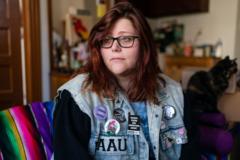In a bold move ahead of the annual March for Life rally, President Donald Trump has pardoned 23 anti-abortion activists, some of whom were previously convicted of obstructing access to reproductive health clinics and intimidating staff and patients. The pardons were part of a series of executive orders Trump signed on Thursday, as he sought to reaffirm his commitment to anti-abortion initiatives early in his presidency.
During the announcement, Trump characterized the convictions as "ridiculous" and emphasized that the activists, many of whom are elderly, were wrongly prosecuted. The timing of the pardons raised eyebrows, particularly given that they were issued just a day before the annual gathering in Washington, D.C., where Trump is expected to address attendees via video link. This year marks a continuation of Trump's engagement with the rally, following his previous attendance as the first sitting president in 2020.
One of the notable figures among the pardoned activists is Lauren Handy, the leader of Progressive Anti-Abortion Uprising (PAAU). Handy’s group was involved in a 2020 incident where they stormed a Washington reproductive health clinic, leading to injuries among staff members. Handy's conviction in 2023 further fueled discussions about the political ramifications of her actions. Supporters of the pardoned activists argue that their convictions were politically motivated, claiming they were targeted by the administration of President Joe Biden.
Marjorie Dannenfelser, president of Susan B Anthony Pro-Life America, praised Trump's decision, asserting that the activists represented a courageous stand against perceived injustices by the Department of Justice. Conversely, abortion rights advocates expressed alarm, interpreting the pardons as a clear indication of Trump's unwavering stance against abortion rights. Critics, including representatives from national abortion rights organizations, argued that Trump is attempting to navigate a complex political landscape, claiming he has been misleading regarding his agenda concerning abortion.
As the nation continues to grapple with the debates surrounding reproductive rights, these pardons by Trump signify a larger ideological divide that persists in American politics, with abortion remaining a contentious issue that influences electoral campaigns and policy discussions.




















